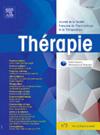Cannabidiol (CBD): Confronting consumers’ expectations of therapeutic benefits with pharmacological reality
IF 2.2
4区 医学
Q3 PHARMACOLOGY & PHARMACY
引用次数: 0
Abstract
In recent years, the increase in cannabidiol (CBD) sales in Europe has raised questions regarding the legal status of this product, as well as its safety of use. Consumers seem to be looking for solutions to various health issues. However, the scientific reality is much more nuanced. The European CBD market emerged in Switzerland in 2016 and subsequently expanded across the continent. This expansion has been facilitated by the establishment of delta-9-tetrahydrocannabinol (THC) concentration limits for these products. However, the current market offers a diverse range of CBD products, often lacking clear information on raw materials, product concentrations and recommended dosages. Regulating these products is challenging, as the appropriate classification of CBD remains uncertain. CBD products are in high demand worldwide, with many people seeking alternative treatments for medical conditions or general health and well-being benefits. However, the use of CBD products often relies on self-medication and lacks sufficient scientific evidence. Improved communication between patients and healthcare professionals is needed to ensure informed decisions and address potential interactions with other medications. Scientific evidence on CBD is currently limited and the efficacy of CBD-containing products has only been proven in clinical trials for Epidyolex® as an add-on therapy. There is no consensus on the long-term safety, appropriate dosage, schedules or administration routes for CBD. Health claims associated with CBD are not consistent with the available scientific research, which is still in its early stages. Further clinical research is needed to establish the efficacy and safety of CBD in various medical conditions. The enthusiasm surrounding CBD-based products should be tempered by the limited scientific evidence of their efficacy, the inadequacy of patient expectations, regulatory concerns and potential drug interactions.
大麻二酚(CBD):消费者对治疗效果的期望与药理学现实的对峙
近年来,欧洲大麻二酚(CBD)销售量的增加引发了有关该产品法律地位及其使用安全性的问题。消费者似乎在寻找各种健康问题的解决方案。然而,科学现实却更加微妙。欧洲的 CBD 市场于 2016 年在瑞士兴起,随后扩展到整个欧洲大陆。由于对这些产品规定了δ-9-四氢大麻酚(THC)浓度限制,促进了这种扩张。然而,目前市场上的 CBD 产品种类繁多,往往缺乏关于原料、产品浓度和推荐剂量的明确信息。对这些产品进行监管具有挑战性,因为 CBD 的适当分类仍不确定。全球对 CBD 产品的需求量很大,许多人都在寻求替代疗法来治疗疾病或改善一般健康状况。然而,CBD 产品的使用往往依赖于自我治疗,缺乏足够的科学证据。患者和医疗保健专业人员之间需要加强沟通,以确保做出明智的决定,并解决与其他药物的潜在相互作用。目前有关 CBD 的科学证据有限,含 CBD 产品的疗效仅在 Epidyolex® 作为附加疗法的临床试验中得到证实。关于 CBD 的长期安全性、适当剂量、服用时间或服用途径,目前还没有达成共识。与 CBD 相关的健康声明与现有的科学研究并不一致,这些研究仍处于早期阶段。需要进一步开展临床研究,以确定 CBD 在各种医疗条件下的有效性和安全性。对以 CBD 为基础的产品的热情应受到以下因素的影响:其疗效的科学证据有限、患者期望值不足、监管问题和潜在的药物相互作用。
本文章由计算机程序翻译,如有差异,请以英文原文为准。
求助全文
约1分钟内获得全文
求助全文
来源期刊

Therapie
医学-药学
CiteScore
3.50
自引率
7.70%
发文量
132
审稿时长
57 days
期刊介绍:
Thérapie is a peer-reviewed journal devoted to Clinical Pharmacology, Therapeutics, Pharmacokinetics, Pharmacovigilance, Addictovigilance, Social Pharmacology, Pharmacoepidemiology, Pharmacoeconomics and Evidence-Based-Medicine. Thérapie publishes in French or in English original articles, general reviews, letters to the editor reporting original findings, correspondence relating to articles or letters published in the Journal, short articles, editorials on up-to-date topics, Pharmacovigilance or Addictovigilance reports that follow the French "guidelines" concerning good practice in pharmacovigilance publications. The journal also publishes thematic issues on topical subject.
The journal is indexed in the main international data bases and notably in: Biosis Previews/Biological Abstracts, Embase/Excerpta Medica, Medline/Index Medicus, Science Citation Index.
 求助内容:
求助内容: 应助结果提醒方式:
应助结果提醒方式:


